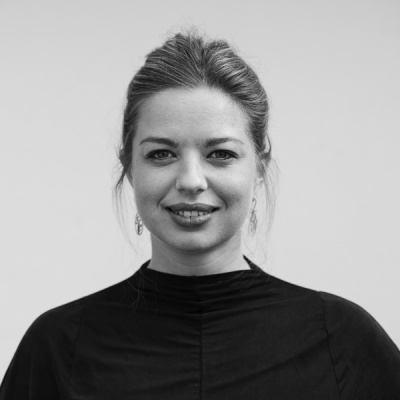Rose-Anne Gush is an art historian, theorist, educator and sporadic artist and curator. Her research interests alight on political aesthetics and theories of ‘global art’, transnational surrealism, the spatial politics of capitalism, artistic form and geographies of extraction, as well as theories of Marxism, gender, trauma and memory. Her research and teaching are oriented towards anti-racist, feminist, and emancipatory horizons.
Gush's first book length project Artistic Labour of the Body (forthcoming, Historical Materialism Book Series, Brill/Haymarket) builds on her PhD, explores the body in Theodor W. Adorno’s aesthetics in relation post-‘68 art and literature, theorising the use of the body in practices that investigated the afterlives of fascism. Her post-doctoral research project, Instability of Form after the Global Turn, brings together a body of work by women artists associated or adjacent to surrealism (from Europe and the Caribbean) to consider a pre-history of ‘global art’, or art under the conditions of globalisation, in relation to art’s formal navigation of the border/boundary, and in conjunction with a spatial analysis of the combined and uneven development of capitalism. This project has been supported by a 2020 Juliane and Franz Roh Post-Doctoral Fellowship in Modern and Contemporary Art at the Zentralinstitut für Kunstgeschichte, Munich, and is supported by a Research Grant at the DFK in Paris in 2021. Her current (second) project The Work of Art in the Age of the Planetary Mine, critiques extractive capitalism through artistic practice and critical geography. This includes the collaborative investigation How Does One Get to Own a Mountain?! with Philipp Sattler, which uses artisic research to consider lithium extraction in Austria and its planetary imbrications, informing the co-curated exhibition Besessene Berge/Possessed Mountains within parallel programme for Steirischerherbst 2025 at Forum Stadtpark.
Her research is published in FKW // Zeitschrift für Geschlechterforschung und visuelle Kultur (2024); Kunst und Politik: Jahrbuch der Guernica-Gesellschaft (2020); Third Text (2019); Performance Research (2018); Objects of Feminism (Helsinki, 2017), and AWARE (2017). Her essays and art criticism have been recently published in Berlin Review, Brand-New-Life Magazine and Camera Austria.
Gush completed her doctoral dissertation, ‘Figuring Austria’s Repressed Violence: Artistic Labour of the Body in the work of Elfriede Jelinek and VALIE EXPORT’ in January 2019. This research was supported with a University of Leeds 110 Anniversary Scholarship between 2014-2017, and a Zantop Travel Award from the Coalition of Women in German in 2016.
Before joining the IZK, Gush has lectured at the school of Fine Art, History of Art and Cultural Studies, University of Leeds, as part of the Critical Studies Lecture Series at the Sandberg Institute, Amsterdam, Netherlands; at the Centre Prospéro, Langage, image et connaissance at Saint Louis University, Brussels, Belgium; the University of Art and Design and VALIE EXPORT Center for Performance and Media Art, Linz, Austria, and the School of Fine Art, University of Reading. During Spring 2019 she was Teaching Fellow in History and Theory of Art at the Slade School of Fine Art, University College London and between 2019 and 2020 she was a lecturer in Art Theory and Art History at the University of Applied Arts (Universität für angewandte Kunst Wien) in Vienna.
personal website: roseannegush.com
